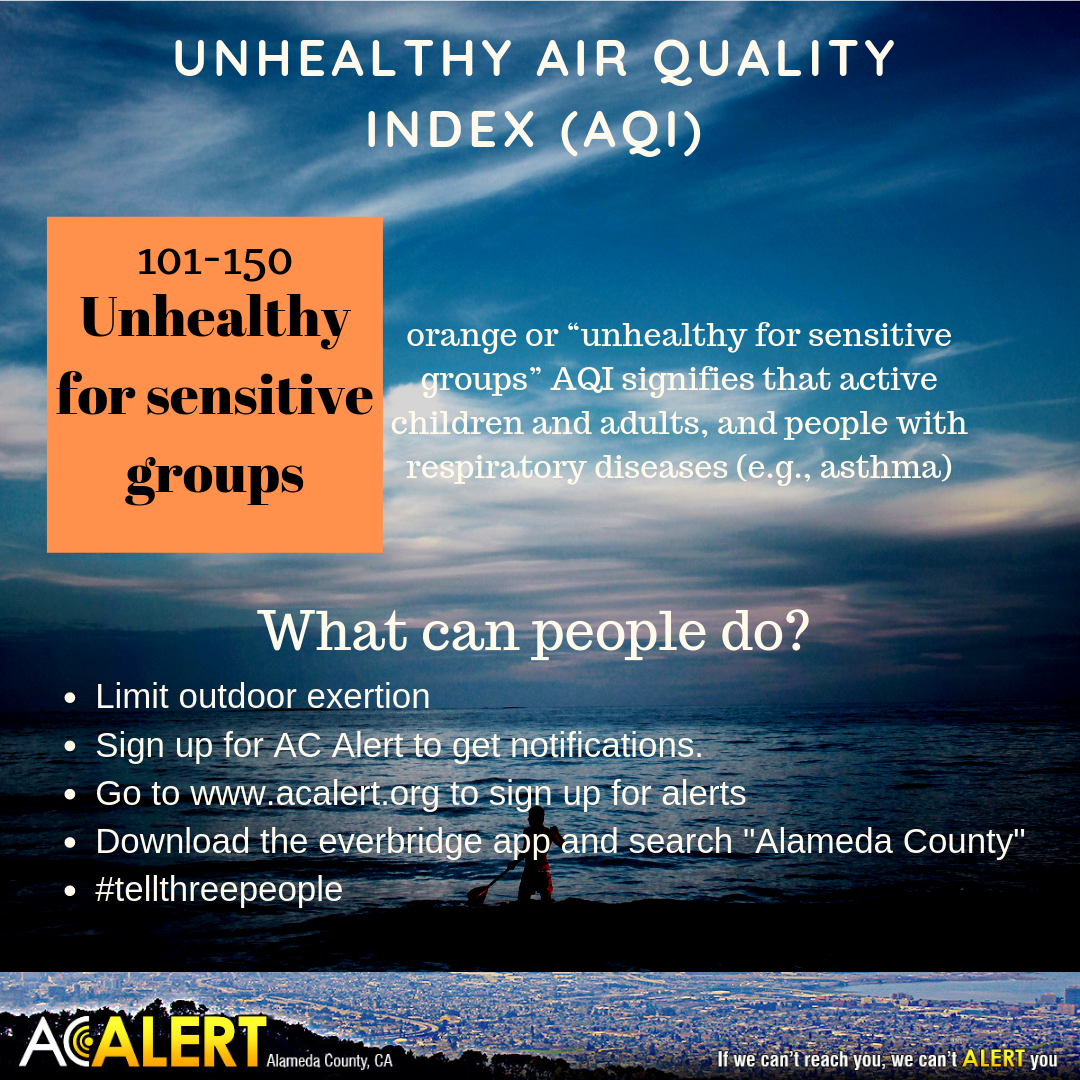The Bay Area Air Quality Management District and the San Francisco Department of Public Health are warning residents about potential hot weather and poor air quality expected in the Bay Area beginning Friday.
The combination of high temperatures across the Bay Area and expected wildfire smoke from the Kincade Fire in Sonoma County may cause a simultaneous heat and poor air quality event. Residents are reminded to keep cool and hydrated when the weather is hot and the air quality is poor.
Bay Area Air Quality Management District releases advisory
The Bay Area Air Quality Management District is extending a Spare the Air Alert for smoke through tomorrow, Friday, October 25, for the entire the region. The Air District is closely monitoring smoke impacts from the Kincade Fire in Sonoma County and the northern portion of the Bay Area is currently experiencing smoke impacts. Additional smoke impacts are expected to spread across the Bay Area starting this evening. “Smoke from the Kincade Fire is expected to spread throughout the Bay Area tomorrow,” said Jack Broadbent, executive officer of the Bay Area Air District. “It is important that residents protect their health and avoid smoke exposure by staying indoors, if heat is not an issue. If temperatures are too hot indoors, visit an air-cooling center or other facility, such as a library or other public building that has filtered air.”
Spare the Air Alerts are issued when ozone or particulate matter pollution is forecast to reach unhealthy levels.
Realtime updates from the Bay Area Air Quality Management District found HERE.
If the smell of smoke is present or visible, it is important that Bay Area residents protect their health by avoiding exposure. If possible, stay inside with windows and doors closed until smoke levels subside. It is also recommended that Bay Area residents set air conditioning units and car vent systems to re-circulate to prevent outside air from moving inside.
Smoke can irritate the eyes and airways, causing coughing, a dry scratchy throat and irritated sinuses. Elevated particulate matter in the air can trigger wheezing in those who suffer from asthma, emphysema or COPD. Elderly persons, children and individuals with respiratory illnesses are particularly susceptible to elevated air pollution levels and should take extra precautions to avoid exposure.

Check here for real-time air quality readings: https://bit.ly/2p7UFgs.
To find out when a Spare the Air Alert is in effect, residents can register for email AirAlerts at www.sparetheair.org, call 1(800) HELP-AIR, download the Spare the Air App or connect with Spare the Air on Facebook or Twitter.
